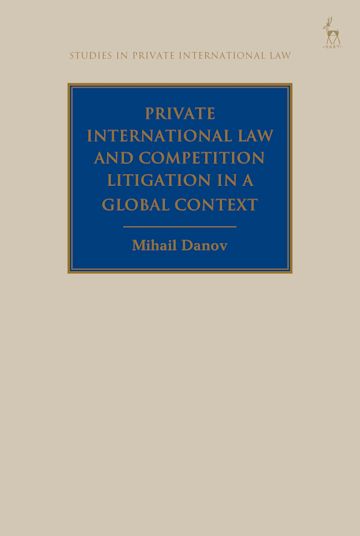Views
Forcing a Square Peg into a Round Hole – The Actio Pauliana and the Brussels Ia Regulation
Earlier today, the Court of Justice held that, under certain circumstances, special jurisdiction for an actio pauliana can be based on Art. 7(1) Brussels Ia (Case C-337/17 Feniks).
The actio pauliana is an instrument provided by the national laws of several EU member states that allows the creditor to challenge fraudulent acts by their debtor that have been committed to the creditor’s detriment. The ECJ already had several opportunities to decide on the availability of individual grounds of special jurisdiction for such an action, but has reliably denied their availability. In today’s decision however, the Court confirmed the availability of special jurisdiction for matters relating to contract, contrary to the proposition of AG Bobek (Opinion delivered on 21 June 2018). Read more
International commercial courts: should the EU be next? – EP study building competence in commercial law
By Erlis Themeli, Xandra Kramer, and Georgia Antonopoulou, Erasmus University Rotterdam (postdoc researcher, PI, and PhD candidate ERC project Building EU Civil Justice)
Previous posts on this blog have described the emerging international commercial and business courts in various Member States. While the primary aim is and should be improving the dispute resolution system for businesses, the establishment of these courts also points to the increase of competitive activities by certain Member States that try to attract international commercial litigation. Triggered by the need to facilitate business, prospects of financial gain, and more recently also by the supposed vacuum that Brexit will create, France, Germany, the Netherlands, and Belgium in particular have been busy establishing outlets for international commercial litigants. One of the previous posts by the present authors dedicated to these developments asked who will be next to enter the competition game started by these countries. In another post, Giesela Rühl suggested that the EU could be the next. Read more
Genocide by Expropriation – New Tendencies in US State Immunity Law for Art-Related Holocaust Litigations
On 10 July 2018, the United States Court of Appeals for the District of Columbia Circuit rendered its judgment in the matter of Alan Philipps et al. v. the Federal Republic of Germany and the Stiftung Preussischer Kulturbesitz.
This case involves a claim by heirs of Holocaust victims for restitution of the „Welfenschatz“ (Guelph Treasure), a collection of medieval relics and devotional art housed for generations in the Cathedral of Braunschweig (Brunswick), Germany. This treasure is now on display at the Kunstgewerbemuseum Berlin (Museum of Decorative Arts) which is run by the Stiftung Preussischer Kulturbesitz. The value of the treasure is estimated to amount to USD 250 million (according to the claim for damages raised in the proceedings). Read more
News
Out Now: Private International Law and Competition Litigation in a Global Context, by Mihail Danov

Description
This important book systematically analyses the private international law issues regarding private antitrust damages claims which arise out of transnational competition law infringements. It identifies those problems that need to be considered by injured parties, defendants, judges and policy-makers when dealing with cross-border private antitrust damages claims in a global context. It considers the post-Brexit landscape and the implications in cross border private proceedings before the English courts and suggests how the legal landscape should be developed. It also sets out how private international law techniques could play an increasingly important role in private antitrust enforcement.
Comprehensive and rigorous, this is required reading for scholars of both competition litigation and private international law.
Commercial Disputes and anti-suit relief in Anglophone Africa
Reposted from Thought Leaders 4 Fire
Commercial Disputes and anti-suit relief in Anglophone Africa – a panel discussion
06 Oct 2023
Location: 12:00-1:00 pm UK Time Virtual Event (Zoom)
Members: FREE to attend – Book by 06 Oct
Non Members: Register above as a member and attend for FREE – Book by 06 Oct
Symposium for Trevor Hartley at LSE on 27 October 2023
Written by Ugljesa Grusic, Associate Professor at University College London, Faculty of Laws
Jacco Bomhoff (LSE), Ugljesa Grusic and Manuel Penades (KCL) are pleased to announce that the LSE Law School will host a symposium to celebrate the scholarly work of emeritus professor Trevor C Hartley.
Trevor has long been one of the world’s most distinguished scholars of Conflict of Laws (Private International Law), continuing a tradition started at the LSE by Professor Otto Kahn-Freund. For many decades, he has been at the forefront of developments in the field. As a prominent critic, notably of the Court of Justice’s efforts to unify European private international law. But also as an active participant in projects of legislation and modernization. And as author of authoritative treatises and clear and accessible student textbooks.


